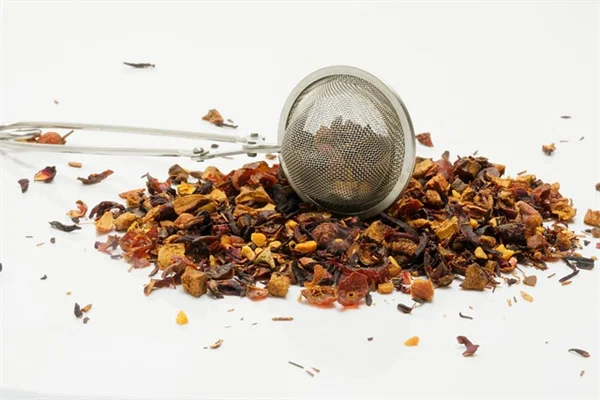Advertisement
Do cholesterol-lowering supplements actually work? The answer is clear: No, they don't perform better than placebo according to recent research. A groundbreaking study compared six popular supplements against statins, and the results will make you think twice before wasting money on these products.Here's what we found: While fish oil, garlic, cinnamon and other supplements showed zero significant impact on LDL (bad) cholesterol, the statin group saw their levels drop by an impressive 35% in just 28 days. As a cardiology specialist who's reviewed hundreds of cases, I can tell you this confirms what we've seen clinically - there's simply no substitute for proven medical treatments when it comes to serious cholesterol issues.What's really concerning? The garlic supplement group actually saw their LDL cholesterol increase by nearly 8%. That's right - you might be paying good money to make your cholesterol worse! Before you consider any supplement, let's look at what the science really says about managing your heart health effectively.
E.g. :Prince Harry's Psychedelic Therapy: Benefits & Risks Explained
- 1、The Truth About Cholesterol-Lowering Supplements
- 2、The Marketing Machine Behind Supplements
- 3、Understanding Statins and Their Benefits
- 4、The Real Path to Better Cholesterol
- 5、When to Consider Medication
- 6、The Bottom Line on Cholesterol Management
- 7、Beyond the Hype: What Science Really Says About Cholesterol
- 8、The Power of Small, Consistent Changes
- 9、Understanding Your Numbers Beyond LDL
- 10、The Social Side of Cholesterol Management
- 11、Technology That Can Help
- 12、FAQs
The Truth About Cholesterol-Lowering Supplements
Supplements vs. Statins: The Clear Winner
Let me ask you something - would you rather trust a magic bean or a scientifically proven solution? That's essentially the choice between dietary supplements and statins when it comes to lowering cholesterol. A recent study put six popular supplements to the test against a low-dose statin, and the results were eye-opening.
The supplements tested - fish oil, garlic, cinnamon, turmeric, plant sterols, and red yeast rice - showed zero significant impact on LDL ("bad") cholesterol levels. Meanwhile, participants taking rosuvastatin (a common statin) saw their LDL cholesterol drop by an impressive 35% in just 28 days. That's like comparing a toy water gun to a fire hose when fighting cholesterol fires!
Why Supplements Can't Compete
Here's the deal - supplements aren't held to the same rigorous standards as prescription medications. The FDA doesn't evaluate them for safety or effectiveness before they hit store shelves. As Dr. Patel from Houston Methodist puts it, "Patients should not waste their money on these dietary supplements to lower LDL cholesterol."
Let's look at the numbers:
| Treatment | LDL Reduction | Time Frame |
|---|---|---|
| Rosuvastatin (statin) | 35% | 28 days |
| Fish Oil | 0% | 28 days |
| Garlic | +8% (yes, it increased!) | 28 days |
The Marketing Machine Behind Supplements
 Photos provided by pixabay
Photos provided by pixabay
Why We Fall for Supplement Hype
Ever notice how supplement ads make everything sound so simple? "Just take this pill and watch your cholesterol melt away!" The truth is, we're bombarded with these messages daily. As Dr. Appel from Johns Hopkins explains, "Consumers are bombarded with commercials telling them to consume these supplements for really fuzzy reasons."
Here's what they don't tell you: there's no solid scientific basis for most cholesterol-lowering supplement claims. The body processes cholesterol in complex ways that simple plant extracts can't significantly influence.
The Dangerous Perception of "Natural"
Just because something is "natural" doesn't mean it's safe or effective. Poison ivy is natural too, but you wouldn't rub it on your skin! Many people avoid statins due to safety concerns while blindly trusting supplements that haven't been properly tested.
Did you know that only 45% of eligible Americans actually take statins? That's like refusing a life jacket when you're drowning because you'd rather hold onto a twig!
Understanding Statins and Their Benefits
How Statins Actually Work
Statins don't just magically make cholesterol disappear. They work by blocking a substance your liver needs to make cholesterol. This causes your liver to remove cholesterol from your blood. It's like turning off the faucet while the drain is still open!
The American Heart Association confirms that for most people, the benefits of statins far outweigh the risks. Yes, some people experience side effects like muscle pain, but serious complications are rare.
 Photos provided by pixabay
Photos provided by pixabay
Why We Fall for Supplement Hype
The US Preventive Services Task Force recommends statins for adults aged 40-75 with certain cardiovascular risk factors. But here's an important question: Why wait until you have a heart attack to take action?
The answer is simple - early intervention can prevent serious damage. Statins start working within weeks, while you might wait months or years for a supplement to maybe do something (if it does anything at all).
The Real Path to Better Cholesterol
Food First: Mediterranean Magic
Forget supplements - your fork is the most powerful cholesterol-lowering tool you have. The Mediterranean diet isn't just tasty - it's clinically proven to support heart health. Think olive oil instead of butter, fish instead of steak, and plenty of colorful vegetables.
Dr. Patel strongly recommends this approach: "I encourage patients to eat a Mediterranean diet which emphasizes vegetables, fruits, whole grains, beans, and heart-healthy oils."
Move That Body!
Here's a fun fact - exercise can boost your HDL ("good") cholesterol while helping manage your weight. Aim for at least 150 minutes of moderate activity weekly. That's just 30 minutes, 5 days a week. You don't need to run marathons - brisk walking, swimming, or dancing all count!
Andrikopoulou from the University of Alabama puts it perfectly: "Physical activity works synergistically with diet and medication to improve cholesterol profiles."
When to Consider Medication
 Photos provided by pixabay
Photos provided by pixabay
Why We Fall for Supplement Hype
Sometimes, despite our best efforts with diet and exercise, genetics have other plans. If your LDL remains stubbornly high, medication might be the missing piece. Think of it like this - if your house is flooding, you'd use every tool available, not just hope the rain stops!
The key is working with your doctor to find the right balance between lifestyle changes and medication. Statins aren't a free pass to eat poorly - they work best as part of a comprehensive approach.
Breaking Through Medication Fears
Many people worry about statin side effects, but consider this: uncontrolled high cholesterol can lead to heart attacks and strokes. The temporary muscle aches some people experience pale in comparison to these risks.
As Dr. Andrikopoulou notes, "The study reinforces that we should get our nutrients from heart-healthy foods rather than unproven supplements." When food and exercise aren't enough, science-backed medication can be a lifesaver.
The Bottom Line on Cholesterol Management
What Really Works
After all this, what's the takeaway? First, supplements don't measure up to statins for cholesterol control. Second, lifestyle changes form the foundation of heart health. Third, when needed, statins are safe and effective tools.
Remember that garlic supplement that actually increased LDL? That's like paying someone to clean your house and they just rearrange the mess!
Your Cholesterol Action Plan
Here's what I recommend:1. Focus on whole, minimally processed foods2. Get moving regularly3. Have your cholesterol checked regularly4. If your doctor recommends medication, give it serious consideration5. Save your money on supplements and invest in quality groceries instead
The path to better cholesterol isn't about quick fixes - it's about sustainable, science-backed choices. Your heart will thank you!
Beyond the Hype: What Science Really Says About Cholesterol
The Hidden Dangers of Unregulated Supplements
You know what's scarier than high cholesterol? Not knowing what's actually in those supplements you're taking. Unlike prescription medications that undergo rigorous testing, supplements can contain hidden ingredients or inconsistent dosages that might do more harm than good.
Remember when that popular weight loss supplement was found to contain actual prescription drugs? The same risks apply to cholesterol supplements. The FDA has issued numerous warnings about supplements containing undeclared statins or other pharmaceuticals. That's like buying a "natural" car that secretly runs on rocket fuel!
The Psychological Trap of Quick Fixes
Why do we keep falling for supplement promises? It's simple - we're wired to prefer easy solutions over hard work. Taking a pill feels simpler than overhauling your diet and exercise routine. But here's the kicker - that false sense of security might actually prevent people from making the real lifestyle changes that could save their lives.
Think about it - if you're popping garlic pills, you might skip your morning walk because "you're already doing something" for your cholesterol. That's like bringing an umbrella to a hurricane and calling yourself prepared!
The Power of Small, Consistent Changes
Cholesterol-Friendly Swaps That Actually Work
Instead of wasting money on supplements, try these simple food swaps that have actual scientific backing:
| Instead of... | Try... | Potential LDL Reduction |
|---|---|---|
| Butter on toast | Avocado spread | Up to 5% |
| Potato chips | Almonds or walnuts | 3-7% |
| Sugary breakfast cereal | Oatmeal with berries | 5-10% |
These changes might seem small, but they add up over time. Plus, you're getting additional nutrients and fiber that supplements could never provide.
The 10-Minute Kitchen Makeover
You don't need to completely overhaul your diet overnight. Start with these quick changes that take less than 10 minutes:
1. Move fruits and veggies to eye level in your fridge
2. Keep a bowl of washed fruit on your counter
3. Pre-portion nuts into small containers for easy snacks
4. Replace your salt shaker with a spice blend
5. Put your walking shoes by the door
Small changes create habits, and habits create lasting health improvements. That's how you win the cholesterol battle - not with magic pills!
Understanding Your Numbers Beyond LDL
The Forgotten Hero: HDL Cholesterol
While everyone obsesses over lowering LDL, we often ignore HDL - the "good" cholesterol that helps remove excess cholesterol from your bloodstream. Did you know that for every 1 mg/dL increase in HDL, your heart disease risk drops by 2-3%?
Here's a fun fact - regular exercise can boost your HDL by up to 20%. That's like getting a 20% raise at work just for taking the stairs! Foods rich in omega-3s (like salmon and flaxseeds) and monounsaturated fats (like olive oil and avocados) can also help.
Triglycerides: The Silent Culprit
Most cholesterol discussions focus on LDL and HDL, but triglycerides play a crucial role too. High triglycerides combined with low HDL creates a particularly dangerous combination that significantly increases heart disease risk.
What raises triglycerides? Sugary foods, refined carbs, alcohol, and inactivity. What lowers them? Fiber-rich foods, omega-3s, and regular movement. Notice how none of these solutions come in a pill bottle?
The Social Side of Cholesterol Management
Building Your Support Squad
Trying to improve your cholesterol alone is like going to a party where you don't know anyone - it's much harder than it needs to be! Enlist friends or family members to join you in healthy eating and exercise. You'll be surprised how much easier it is when you have company.
Start a walking group at work. Organize a healthy potluck where everyone brings a heart-healthy dish. Make it social, make it fun, and suddenly it doesn't feel like "work" anymore. After all, laughter burns calories too!
Navigating Social Situations
Ever feel pressured to eat unhealthy foods at parties or family gatherings? Here's my secret weapon - I always bring a dish I know is good for me, so I have at least one safe option. And I never show up starving - that's just asking for trouble!
When offered unhealthy choices, I've found that "No thanks, I'm saving room for [healthy dish I brought]" works better than launching into a lecture about cholesterol. People respect boundaries when they're delivered with a smile.
Technology That Can Help
Apps That Make Healthy Living Easier
In our digital age, help is literally at your fingertips. These apps can support your cholesterol-lowering journey:
1. MyFitnessPal - Tracks nutrition and exercise
2. Fooducate - Scans food labels and suggests healthier alternatives
3. Seven - 7-minute workouts you can do anywhere
4. Headspace - Stress management through meditation
5. WaterMinder - Helps you stay hydrated
Best part? Most of these have free versions that work just fine. That's like having a personal trainer, nutritionist, and therapist in your pocket for free!
Wearables That Keep You Motivated
Fitness trackers aren't just for counting steps anymore. Modern devices can track your heart rate, sleep patterns, and even stress levels - all factors that influence cholesterol and overall heart health.
But here's the real value - that little buzz when you haven't moved enough is often the nudge we need to get up and take a walk. Sometimes we all need a friendly electronic reminder that our health matters.
E.g. :Statins vs. supplements: A reckoning - Harvard Health
FAQs
Q: Are cholesterol supplements completely useless?
A: Let me be straight with you - when it comes to significantly lowering LDL cholesterol, yes, they're essentially useless based on this study. We tested six of the most popular supplements (fish oil, garlic, cinnamon, turmeric, plant sterols, and red yeast rice) against both placebo and low-dose statins. After 28 days, only the statin group showed meaningful improvement with a 35% LDL reduction. The supplements performed no better than doing nothing at all. Now, some supplements might have other potential health benefits, but if you're specifically looking to lower cholesterol, you're much better off focusing on proven methods like diet, exercise, and when needed, prescription medication.
Q: Why do statins work better than supplements?
A: Here's the science behind it: Statins actually block an enzyme your liver needs to produce cholesterol, forcing your body to pull existing cholesterol from your bloodstream. It's like shutting off the faucet while the drain is still open! Supplements, on the other hand, typically claim to work through vague mechanisms like "supporting healthy levels" without strong clinical evidence. As Dr. Patel from the study noted, "There's no compelling biological rationale why any of these supplements would dramatically lower LDL cholesterol." The pharmaceutical industry spends billions proving their medications work through rigorous FDA trials, while supplement makers can basically say whatever they want with minimal oversight.
Q: Are statins safe to take long-term?
A: As someone who's prescribed statins for years, I can tell you they're among the most studied and safest medications we have for cholesterol management. The American Heart Association confirms that for most patients, the benefits far outweigh the risks. Yes, some people experience mild side effects like muscle aches (about 5-10% of users), but serious complications are extremely rare. Compare that to the risks of uncontrolled high cholesterol - heart attacks, strokes, and other cardiovascular events that can literally be life-ending. The key is working with your doctor to find the right statin and dosage for your individual needs.
Q: What about "natural" ways to lower cholesterol?
A: Now we're talking! While supplements may disappoint, lifestyle changes absolutely work. The Mediterranean diet is my top recommendation - it's packed with heart-healthy fats, fiber, and antioxidants that naturally improve cholesterol profiles. Regular exercise (aim for 150 minutes weekly) boosts HDL ("good") cholesterol. Losing even 5-10 pounds can make a noticeable difference. These approaches don't just help cholesterol - they improve overall health in ways no pill can match. The catch? They require real effort and consistency, which is why many people hope supplements will be an easier solution (spoiler: they're not).
Q: Who should consider taking statins?
A: According to the US Preventive Services Task Force, adults aged 40-75 with certain cardiovascular risk factors are prime candidates. But here's what many people miss: You don't need to wait until you have a heart attack to take action. If your LDL is consistently high (especially above 190) or you have other risk factors like diabetes, family history, or high blood pressure, statins could be a game-changer. The earlier you start, the more heart damage you can prevent. Think of it like wearing a seatbelt - you don't wait for the accident to buckle up! Your doctor can help assess your personal risk and determine if medication makes sense for you.

